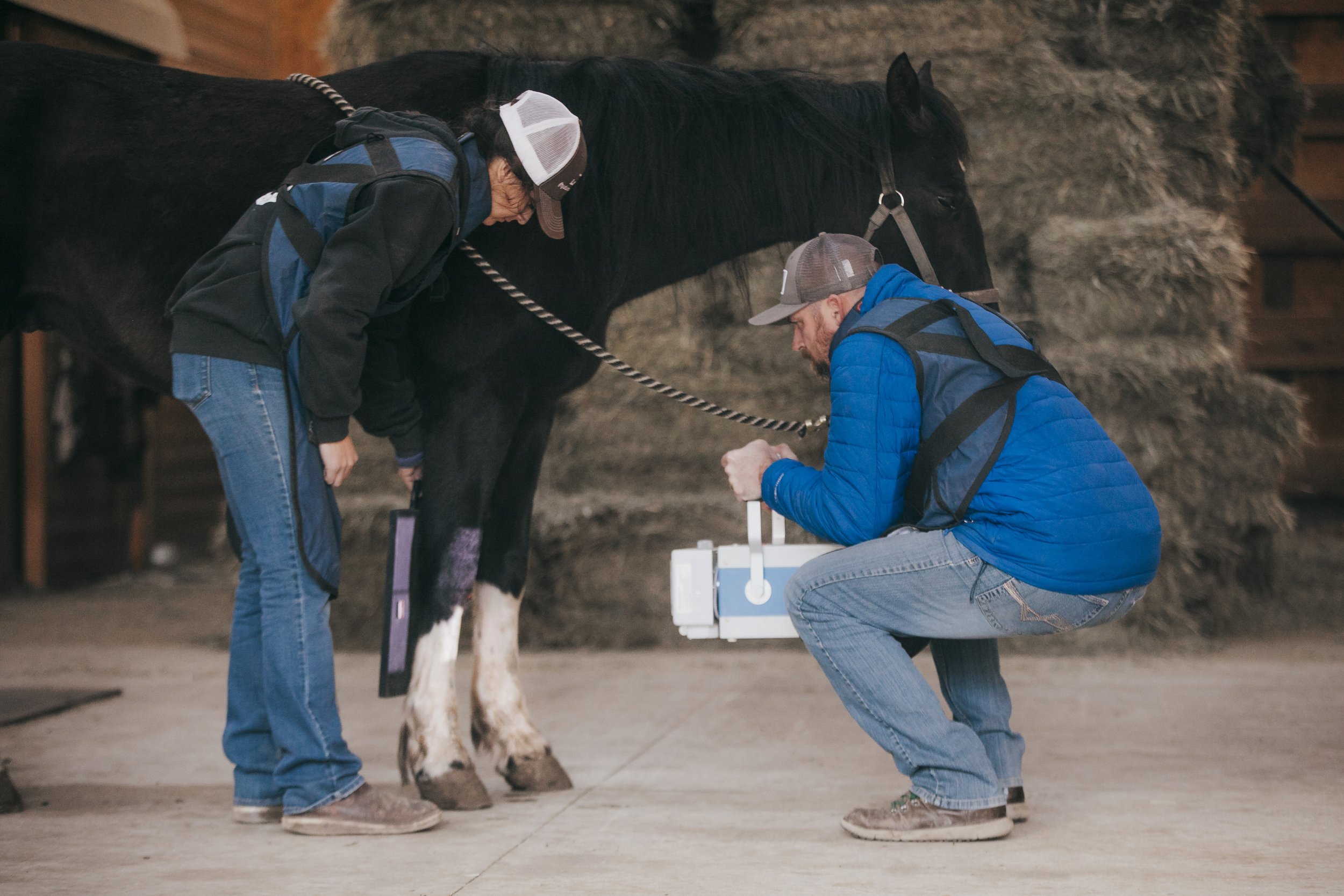
Laminitis
Laminitis is a painful and potentially debilitating condition affecting the hooves of horses. It involves inflammation of the laminae, the sensitive structures within the hoof that connect the hoof wall to the coffin bone. This inflammation can cause severe pain and, if left untreated, may lead to permanent damage or even the need for euthanasia.
To ensure your horse's comfort and aid in recovery, please keep your horse confined to the smallest location possible where they will be comfortable and able to rest. Administer anti-inflammatory medications as prescribed by your veterinarian. These medications are crucial not only for keeping your horse comfortable but also for reducing inflammation in the hoof, which helps prevent further damage.
It is recommended to keep your horse in Styrofoam pads or boots, such as Easy Cloud Boots or Soft Rides, until the next recheck. These pads and boots provide cushioning and support to the hooves, helping to alleviate pain and promote healing.
Diet plays a significant role in your horse's recovery and in preventing additional episodes of laminitis. Please limit sugar in your horse's diet, including grain and hay, and remove grazing on green pastures. If your horse is currently on a grain ration, consider replacing it with a ration balancer. This will ensure your horse receives the necessary nutrients while limiting calorie and sugar intake. If low-sugar hay is not available, soaking hay prior to feeding can help decrease its sugar content.
Generally, a horse should consume approximately 2% of their body weight in hay per day, divided into multiple feedings. If your horse needs to lose weight, this amount should be reduced to about 1.5% of their body weight until they reach the desired weight. Using a hanging scale can help ensure your horse is getting the proper amount of hay at each feeding. Maintaining a healthy weight is essential as your horse recovers from laminitis.
PPID (Cushing's disease) and insulin resistance increase the likelihood of your horse suffering from laminitis. It is recommended to run bloodwork to check ACTH (an indicator of PPID) and insulin levels. Based on these results, additional medications may be recommended to manage these conditions.
A recheck is recommended in 1-2 weeks, depending on how comfortable your horse is. If you do not see any improvement within 2 days, please call so that the current plan can be reassessed to best meet your horse's needs.
